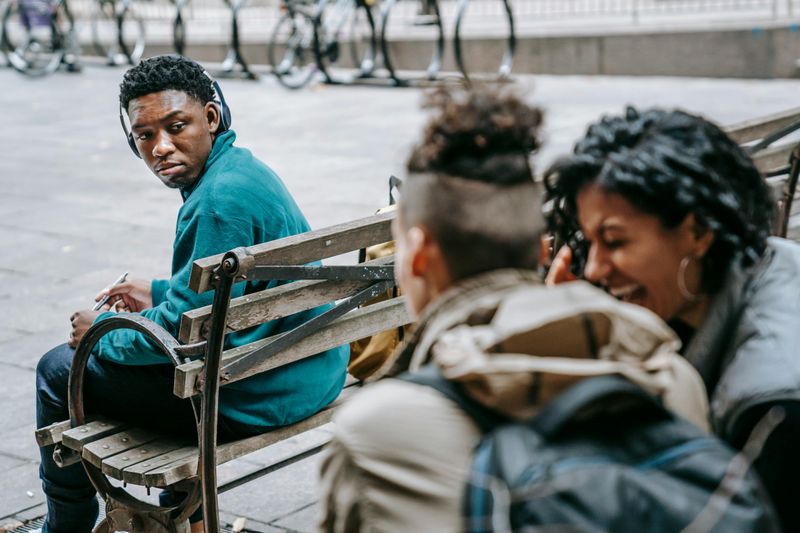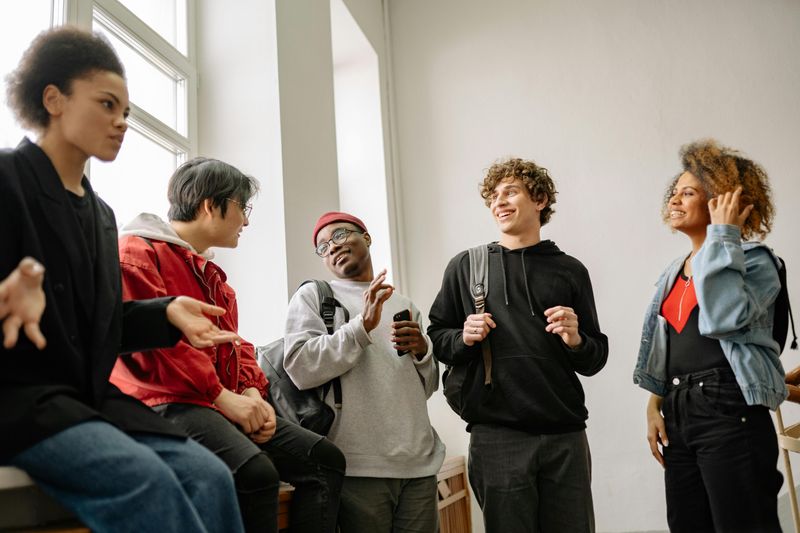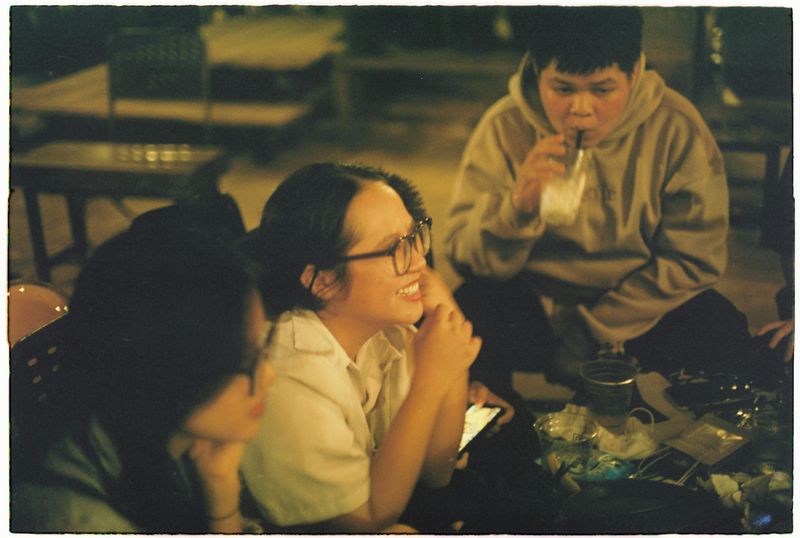16 Subtle Signs Someone Secretly Has a Problem With You

Have you ever felt like something was off with a friend, coworker, or family member, but you couldn’t quite put your finger on it? Sometimes people don’t come right out and say they’re upset with you. Instead, they show it through small behaviors that are easy to miss if you’re not paying attention. Learning to spot these quiet signals can help you understand what’s really going on and decide how to handle the situation.
1. They Give You the Cold Shoulder

Distance can speak louder than words. Someone who used to chat freely with you might suddenly keep conversations to a bare minimum or walk the other direction when they see you coming.
This shift isn’t accidental—it’s their way of creating space without having an uncomfortable conversation. You might notice they seem busy whenever you approach or give one-word answers to questions that used to spark real discussions.
Pay attention to patterns rather than one-off moments. If the coldness continues over days or weeks, there’s likely something brewing beneath the surface that hasn’t been addressed yet.
2. They Stop Reaching Out

Remember when they used to text you funny memes or invite you to hang out? That silence you’re hearing now isn’t just coincidence. When someone stops initiating contact, they’re quietly stepping back from the relationship.
Your messages might sit on read for hours or days, and plans that used to happen naturally now feel like pulling teeth to arrange. This withdrawal is their way of creating emotional distance without a direct confrontation.
It’s easier for them to fade out slowly than to have an honest conversation about what’s bothering them, leaving you wondering what changed. That slow disappearance speaks volumes—it’s their unspoken way of saying something’s off, even if they never admit it.
3. Their Tone Changes Around You

Voices carry emotion, and a shift in tone reveals what words try to hide. Someone who once spoke to you warmly might now sound clipped, impatient, or dripping with sarcasm when you interact.
These tonal changes aren’t random mood swings—they’re leaking frustration or disapproval. You might hear an edge in their voice during casual conversations or detect annoyance when you ask simple questions.
Even if their words seem polite, the way they deliver them tells the real story. Trust your instincts when something sounds off, because tone often reveals feelings people aren’t ready to express directly.
4. They Overlook Your Achievements

Celebrating wins together strengthens bonds, but some people can’t bring themselves to cheer for you. When you share exciting news about a promotion, accomplishment, or personal victory, they might respond with a flat “cool” or quickly change the subject.
This dismissive behavior often stems from jealousy or resentment bubbling under the surface. They can’t genuinely feel happy for you when they’re harboring negative feelings, so they minimize your success instead.
Watch for people who used to celebrate with you but now act indifferent. That shift reveals more about their hidden issues than any words could. True friends uplift you even when they’re struggling themselves—so when someone stops clapping for your wins, it’s a clear sign their support has turned into silent competition.
5. They Gossip About You

Finding out someone’s been talking about you behind your back stings differently than direct criticism. Gossip is a weapon people use when they don’t have the courage to address issues face-to-face.
They might share your personal business, twist your words, or spread rumors that paint you in a negative light. This behavior shows clear hostility masked as casual conversation with others.
Often, you’ll hear about it secondhand from someone who thought you should know. When gossip reaches your ears, understand it’s not just careless chatter—it’s a deliberate expression of unresolved conflict someone refuses to handle maturely.
6. They’re Less Supportive Than Usual

Support looks like genuine interest, encouragement, and showing up when it matters. When that suddenly evaporates, you’re left feeling the chill. Someone who once cheered you on might now seem bored by your stories, skeptical of your plans, or critical where they used to be encouraging.
This dramatic shift signals they’re pulling emotional investment away from your relationship. Their lack of enthusiasm isn’t about being busy or distracted—it’s about hidden negativity they haven’t voiced.
True friends stay in your corner even during rough patches, so noticeable withdrawal speaks volumes about changing feelings. That fading enthusiasm isn’t random—it’s a sign they’ve emotionally checked out, leaving you to feel the distance they no longer bother to hide.
7. They’re Quick to Criticize

Constructive feedback helps you grow, but constant nitpicking tears you down. Someone with a hidden problem might disguise their irritation as “helpful advice” that feels more like attacks.
They jump on small mistakes, question your decisions, or point out flaws in everything you do. This pattern of harsh judgment isn’t about wanting to help—it’s frustration finding an outlet through criticism.
Notice whether their feedback actually improves things or just makes you feel inadequate. When someone consistently focuses on what you’re doing wrong rather than acknowledging what you’re doing right, their critique reveals deeper resentment.
8. They Exclude You from Activities

Being left out hurts, especially when it seems intentional. You might discover through social media or casual conversation that your group got together without inviting you.
This exclusion isn’t an oversight—it’s a deliberate choice to create distance. They’re comfortable spending time together but specifically don’t want you there, which speaks directly to how they feel about you.
Sometimes they’ll make excuses about forgetting to invite you or claiming it was last-minute. But patterns of exclusion reveal the truth: someone orchestrated your absence because they have unspoken issues they’re not addressing openly.
9. They’re Defensive Around You

Harmless comments shouldn’t trigger explosive reactions, but that’s exactly what happens when someone’s harboring negative feelings. They might snap at innocent questions or interpret neutral statements as personal attacks.
This defensiveness stems from feeling insecure or threatened by your presence. Everything you say gets filtered through their resentment, causing them to overreact to things that wouldn’t normally bother them.
You’ll find yourself walking on eggshells, carefully choosing words to avoid setting them off. When someone consistently takes things personally around you specifically, it signals deeper issues they’re projecting onto your interactions.
10. They Act Indifferent to Your Problems

Empathy connects us, but its absence creates painful gaps in relationships. When you share struggles or difficulties, someone with a problem might respond with blank stares or change the subject immediately.
They show no curiosity about your challenges and offer zero comfort or support. This emotional coldness is their way of distancing themselves without explicitly ending the relationship.
Contrast this with how they treat others—if they show compassion to everyone except you, that selectivity reveals their true feelings. People who care ask follow-up questions and check in later; people with hidden issues couldn’t care less.
11. They Compete with You

Healthy relationships celebrate each other’s wins rather than turning everything into a contest. But someone harboring resentment might constantly try to outdo you, whether it’s about work accomplishments, possessions, or even casual stories.
They can’t just listen to your experiences—they need to share how theirs was bigger, better, or more impressive. This competitive energy stems from jealousy and the need to prove they’re superior.
You’ll notice they keep score in ways that feel exhausting and unnecessary. When someone treats your friendship like a rivalry, they’re expressing hostility disguised as ambition.
12. They Make Unkind Jokes at Your Expense

Humor should bring people together, not tear them down. Someone with hidden hostility might regularly crack jokes that embarrass you in front of others, then claim you’re too sensitive when you don’t laugh along.
These aren’t playful teases between friends—they’re calculated jabs wrapped in humor. The jokes target your insecurities, mistakes, or appearance, designed to make you feel small while they maintain plausible deniability.
Pay attention to how often you’re the punchline and whether the laughter feels mean-spirited. When someone consistently uses humor to belittle you, their jokes reveal genuine contempt they won’t express directly.
13. They’re Always in a Bad Mood Around You

Moods fluctuate naturally, but consistent grumpiness around you specifically isn’t random. This person might be cheerful with others but turn cold, irritable, or unpleasant the moment you appear.
Your presence seems to flip a switch, bringing out their worst attitude. They might sigh heavily when you speak, roll their eyes at your comments, or radiate annoyance through their body language.
This pattern shows you trigger negative emotions they can’t or won’t discuss. When someone saves their bad mood exclusively for you, it’s a clear sign of unresolved issues poisoning your interactions.
14. They Avoid Physical Contact

Physical touch communicates comfort and connection, so its absence signals emotional withdrawal. Someone who used to greet you with hugs might now avoid even casual contact like handshakes or friendly shoulder touches.
They’ll step back when you move closer, keep their hands to themselves, or create physical barriers between you. This deliberate avoidance reflects their internal discomfort with you.
Watch how they interact with others—if they’re warm and physically affectionate with everyone except you, that selective distance reveals their hidden feelings. Bodies don’t lie about emotional truth the way words sometimes do.
15. They Offer Backhanded Compliments

Phrases like “You’re so brave to wear that!” sound like praise until you realize they’re actually insults. Backhanded compliments are sneaky weapons that let someone criticize you while pretending to be nice.
These disguised put-downs often include words like “actually” or “surprisingly,” implying low expectations. They might say you look good “for once” or that your work is decent “considering.”
The compliment leaves you feeling worse rather than better, which is exactly the intent. When someone consistently delivers praise mixed with poison, they’re expressing resentment through carefully crafted words that maintain social acceptability.
16. They Avoid Eye Contact

Eyes and bodies reveal what mouths won’t say. Someone uncomfortable with you will avoid looking directly at you during conversations, instead glancing away, checking their phone, or focusing on anything else nearby.
Their body language screams distance—crossed arms, turned shoulders, taking steps backward when you approach. These nonverbal signals create an invisible wall between you.
Compare their openness with others to their closed-off posture around you. When someone consistently refuses eye contact and maintains physical distance specifically with you, their body is broadcasting discomfort or dislike they haven’t verbalized yet.

Comments
Loading…